Overview of the Local Government Sector
There are 79 councils in Victoria and they provide a range of essential services to their community. Local government is recognised in the Victorian Constitution (1975) as a “distinct and essential tier of government consisting of democratically elected councils having the functions and powers that the parliament considers are necessary to ensure the peace, order and good government of each municipal district”.
The Local Government Act (1989) sets out the roles and responsibilities of councils, its elected councillors and council administration. Local Government Victoria, as the responsible government agency, provides information, policy advice and support works to councils.
Councils are subject to oversight by the following agencies
- Independent Broad-based Anti-corruption Commission (IBAC)
- Local Government Inspectorate
- Victorian Auditor General’s Office (VAGO)
- Victorian Ombudsman
In addition, under the Victorian Government’s Fair Go Rates Policy, councils are required to keep annual rate rises at or below the Consumer Price Index (CPI). Councils wishing to levy rates above the CPI are required to submit rate cap variations with the Essential Services Commission (ESC). The ESC also produces compliance reports and conducts inquiries in relation to the rate cap.
There are three peak bodies representing councils in Victoria
- The Municipal Association of Victoria (MAV), established under the Municipal Associations Act (1907)
- LG Pro, an association for people working in local government in Victoria
- The Victorian Local Governance Association (VLGA), an independent member-based association supporting councils, councillors and community in good governance
Local Government Act (2020)
The Local Government Bill (2019) formally passed the Victorian Legislative Assembly on 17 March 2020, formally ratifying amendments made in the Legislative Council. The Act received its Royal Assent on 24 March 2020.
The Legislative Council made a number of amendments during its debate. The most significant of these include:
- The position of Deputy Mayor is now optional and no longer mandatory
- In addition to unsubdivided council structures, the Minister will be able to determine that specified councils can consist of uniform multimember wards (equal number of councillors per ward) as well as default single member ward structures
- Election methods will continue to be confined to attendance and postal only, although the Minister still retains the power to determine the method of election for all councils
Other proposed reforms including mandatory candidate training and mandatory councillor induction remain. The regulations governing the implementation of these reforms will be developed in consultation with key stakeholders including the VLGA and released to councils in due course.
For the VLGA’s response to the Victorian Government’s Local Government Bill reform proposal in 2019, click here.
For the VLGA’s analysis of the Local Government Bill (2019) and its impacts on the sector, click here.
Implementation of the Local Government Act (2020)
VLGA is working closely with LGV and other stakeholders in the implementation of the new Act. We will keep councillors updated on its progress as key developments take place.
The latest information from Local Government Victoria (LGV) regarding mandatory candidate training includes the following:
- Course material will be provided to councils by LGV
- Councils to provide mandatory candidate training free of charge on at least two occasions in face to face workshops
- Training is to be run as stand-alone workshops
- Candidates can attend mandatory training in municipalities outside their own
- Councils need to make considerations for people with disabilities
- LGV will run additional mandatory training immediately prior to close of nominations for last minute nominations
- Proof of mandatory training attendance is being developed
The VLGA acknowledges and appreciates the work undertaken by the government and Local Government Victoria in engaging and consulting with peak bodies and councils in the development of the new Act.
The new Act will transform the local government sector in the coming years, with councils given greater autonomy and focus on good governance for the benefit of their community.
However, the Act does prescribe councils to develop and implement certain policies, such as those relating to deliberative community engagement and a council workforce plan. These policies will add to the operational costs to councils, particularly those in rural areas and in the rate capping environment.
The VLGA calls for greater support and resources for councils as part of the implementation of the new Local Government Act.
There are questions regarding the logistics of the mandated candidate training for candidates for the upcoming council elections in October. In addition to the requirement for councils to conduct such training, the requirement for candidates to attend training face to face has the potential to disadvantage members of the community who may not be available at the scheduled time of such training or travel to the trainings’ venues.
We will continue to work with the government and LGV in implementing the new Act, including delivering the VLGA’s recognized candidate information and training sessions in local communities in partnership with councils. This training will complement the mandatory candidate training and equip participants with the skills and know how in campaigning as well as the attributes and knowledge required to be a successful councillor.
For more information, contact the VLGA on 9349 7999.
Gender Equality Act (2020) and local government
The Gender Equality Act was passed in late February and is the first of its kind in Australia. It requires Victorian public sector agencies including universities and councils to measure, report on, plan for and progress gender equality in their organisations.
Importantly, the Gender Equality Act requires councils to consider gender equality not only in their workforce but in the policies, programs and services that they deliver.
The Act will come into effect on 31 March 2021 with the appointment of a new Public Sector Gender Equality Commissioner. Councils will then be required to report on their Gender Equality Action Plans in 2021.
For the VLGA’s analysis of the Gender Equality Act and the new responsibilities for local government under the Act, click here.





